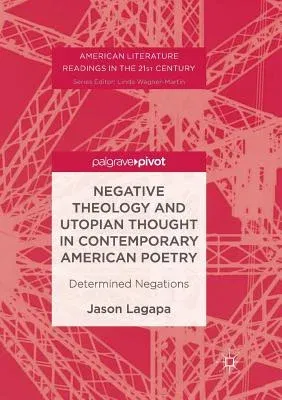Jason Lagapa
(Author)Negative Theology and Utopian Thought in Contemporary American Poetry: Determined Negations (Softcover Reprint of the Original 1st 2017)Paperback - Softcover Reprint of the Original 1st 2017, 28 July 2018

Qty
1
Turbo
Ships in 2 - 3 days
In Stock
Free Delivery
Cash on Delivery
15 Days
Free Returns
Secure Checkout
Part of Series
American Literature Readings in the 21st Century
Part of Series
American Literature Readings in the Twenty-First Century
Print Length
135 pages
Language
English
Publisher
Palgrave MacMillan
Date Published
28 Jul 2018
ISBN-10
3319856170
ISBN-13
9783319856179
Description
Product Details
Author:
Book Edition:
Softcover Reprint of the Original 1st 2017
Book Format:
Paperback
Country of Origin:
NL
Date Published:
28 July 2018
Dimensions:
21.01 x
14.81 x
0.81 cm
ISBN-10:
3319856170
ISBN-13:
9783319856179
Language:
English
Location:
Cham
Pages:
135
Publisher:
Series:
Weight:
185.97 gm

